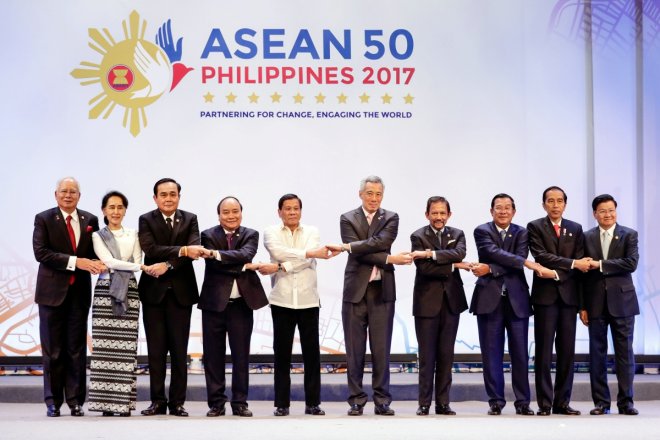
Singapore will be focussing on two things by the time it assumes chairmanship of the Association of South East Asian Nations (ASEAN) next year: drive e-commerce and expand the digital economy.
In a speech during Singapore Business Federation's ASEAN conference, Trade and Industry minister Lim Hng Kiang laid out Singapore's plans to direct ASEAN's focus on e-commerce and initiatives in relation to the digital economy.
The initiatives include streamlining regional trade rules governing e-commerce to promote greater digital connectivity in the region and lowering operating barriers.
The city-state is also gunning to improve trade facilitation measures to boost internalisation plans, including for small and medium enterprises (SMEs) by introducing an ASEAN-wide self-certification regime and an ASEAN 'single window' (ASW). This scheme intends to use electronic information exchange to speed up customs clearance and lower costs for firms.
"The solution to sluggish global growth lies not in closing off markets but keeping markets open for unimpeded trade and investment flows. To ensure ASEAN's value proposition, Asean has to continue building stronger economic connections within Asean and with the outside world," said Lim in a press release.
Meanwhile, the trade minister also expressed that the e-commerce and digital economy push is the new focus area under the execution of the ASEAN Economic Community (AEC) 2025 plan adopted earlier this year.
The AEC 2025 Consolidated Strategic Action Plan (CSAP) seeks to inform public stakeholders of the key action lines that will be implemented under the ASEAN economic integration agenda from 2016 to 2025.
"While the progress towards realising the goals of the AEC remains steady, more could be done, especially in new areas relevant to modern businesses under the AEC 2025 agenda," Lim said, pointing out that the said plan assures the credibility and transparency of ASEAN efforts. AEC 2025 follows the AEC 2015 roadmap, but the new plan commits to a deeper and stronger focus on relevant issues in modern businesses.
This remains the cornerstone of Singapore's foreign economic policy. ASEAN has consistently been the city-state's most important market and largest trading partner. Singapore holds 31% of intra-ASEAN trade, with 25.7% or around US$217.1 billion of its world trade coming from ASEAN countries.








